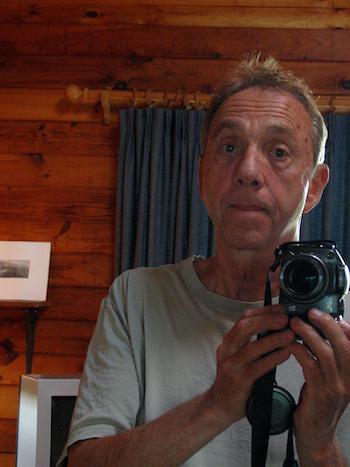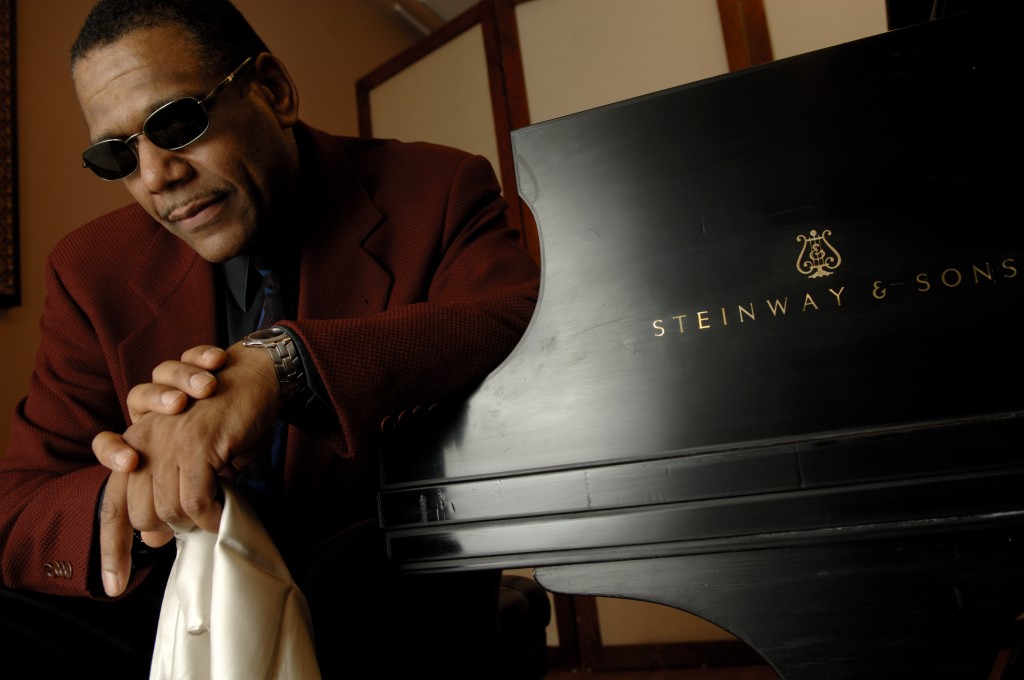Jazz/Film Review: “An Evening of Jazz Healing” — A Thing of Beauty and Sharing
By Michael Ullman
Jazz, in particular, seemed to not merely satisfy Justin Freed’s inner cravings for beauty, but it led him outward, to others, eventually inspiring some of the key relationships in his life.
An Evening of Jazz Healing at the Coolidge Corner Theatre, December 1.

Justin Freed. Photo: Facebook.
At the center of this evening of “jazz healing,” staged at the Coolidge Corner Theater by its former owner, 86-year-old Justin Freed, was his documentary Jazz Saved My Life. Like a true jazz man, Freed told me that he had just finished editing the film the night before. Narrated by Freed, and with music by composer/bandleader Maria Schneider and others, Jazz Saved My Life chronicles the man’s troubled childhood. Freed’s mother was (at the very least) ambivalent about having a child and his father was volatile. The movie includes old photographs of Freed as a skinny, innocent child, looking a little lost as he stared into the camera. Once Freed discovered music it became a refuge — a “sovereign place for the soul.” Jazz, in particular, seemed to not merely satisfy his inner cravings for beauty, but it led him outward, to others, eventually inspiring some of the key relationships in his life, including fellow jazz fans and musicians such as pianist Donal Fox and Schneider, who bookended the screening with live performances. Somehow the music also helped stimulate Freed’s nature photography — he is a visual artist as well as a jazz fan. Freed specializes, it would seem, in photographs of trees and of water. In one of the documentary’s amusing sequences, he shows us a bent-over tree and calls it Thelonious Monk. Another tree was Sonny Rollins and a third, with an intricate display of branches, was Charlie Parker. Parker’s “Cool Blues” was part of the soundtrack, as was Louis Armstrong’s “Wild Man Blues.”
The evening opened with a solo set by the astonishing pianist Fox who, famously, is as comfortable with contemporary classical music as with jazz. He has a powerful technique — I once wrote that his pianos seem larger than those others perform on. He also has wit and a rhythmic vibrancy that permeates everything he plays. Fox improvised a piece that included some stride piano; afterwards he said that it was “Coolidge Corner Stride.” He followed that with a twittering piece he said was inspired by birds, and then a hymn. The highlight for this listener was his tribute to DJ Eric Jackson, who used Tommy Flanagan’s rendition of Horace Silver’s Peace as a theme song for his long-running WGBH radio program. Fox’s rendition was personalized, sturdier than Flanagan’s, but just as effective.

Pianist Donal Fox provided a solo set, filled with wit and a rhythmic vibrancy. Photo: Lou Jones.
A screening of the documentary followed. It deals with the tragedies in Freed’s life, including his divorce and the relatively sudden death from cancer of his son Michael, to whom the film was dedicated. Music didn’t erase the trauma, but it helped pull Freed out of a hopeless funk.
After the film Schneider, a multiple Grammy winner for her writing for big band, brought on a quartet. But she talked first. Schneider addressed the issue of disease, her own (breast cancer) and that of her friends. “Sky Blue,” a song by Schneider as well as the title of her disc on ArtistsShare, was inspired by a tragic loss. Schneider’s friend had terminal cancer. She visited her in the hospital and that friend (I can only paraphrase) said that a trusted doctor gave her a curative bit of wisdom, when bodily healing was no longer possible. He said life was like the clouds, but the reality is the sky behind them, which is as constant as love. After the inevitable passing of her friend, Schneider looked at the sky … and wrote “Sky Blue.” Tragedy, nature, and music were seamlessly connected. Schneider told us that she once ended a concert with that piece. Afterwards, a man came up to her and said that 17 months ago he was told he had 17 months to live. And here he was. Somehow, she said, that man had recognized the inspiration for the composition.

Multiple Grammy-winner Maria Schneider. Photo: Briene Lermitte
Then the quartet: Scott Robinson on reeds, Gary Versace on piano, Jay Anderson, bass, and Johnathan Blake on drums. They played the gently expressive “Sky Blue” in a stripped-down arrangement made especially for this evening. The tune’s theme is both wistful and, in this context, somewhat fragile. In fact, fragility and a kind of daring are often intimately linked in Schneider’s work. The quartet played her “Hang Gliding,” which recalls her act of physical daring, as well as her “Wax Wing,” which, besides documenting her love of birds (a constant source of refreshment she said) also suggests the dismal story of the overreaching Daedelus and Icarus, the lost son. The trick with music is to fly as close to the sun as possible, to take chances while remaining coherent and open. Judging from the conversations I heard afterwards, many of the audience members in the packed house were compelled to remember their own histories with music. They recalled the way they (as did I) — aided by radio shows, friends, and family — were driven by their own needs to stumble from musical discovery to discovery. In the process, we learned that music can be as revelatory as it is healing. “Wild, man,” we used to say, nodding our heads in appreciation, that was “cool.” To each explorer, music is a secret and a means of sharing.
Michael Ullman studied classical clarinet and was educated at Harvard, the University of Chicago, and the U. of Michigan, from which he received a PhD in English. The author or co-author of two books on jazz, he has written on jazz and classical music for the Atlantic Monthly, New Republic, High Fidelity, Stereophile, Boston Phoenix, Boston Globe, and other venues. His articles on Dickens, Joyce, Kipling, and others have appeared in academic journals. For over 20 years, he has written a bi-monthly jazz column for Fanfare Magazine, for which he also reviews classical music. At Tufts University, he teaches mostly modernist writers in the English Department and jazz and blues history in the Music Department. He plays piano badly.
Tagged: Donal Fox, Jazz Saved My Life, Justin Freed, Maria Schneider

Love this review. Inspired writing. Wish I could have been there to see/hear the concert. Keep them coming.
Thank you, Michael, for your sensitive story.
My moments with you after the concert were equally memorable and I send my deepest and warmest regards to you.
Justin